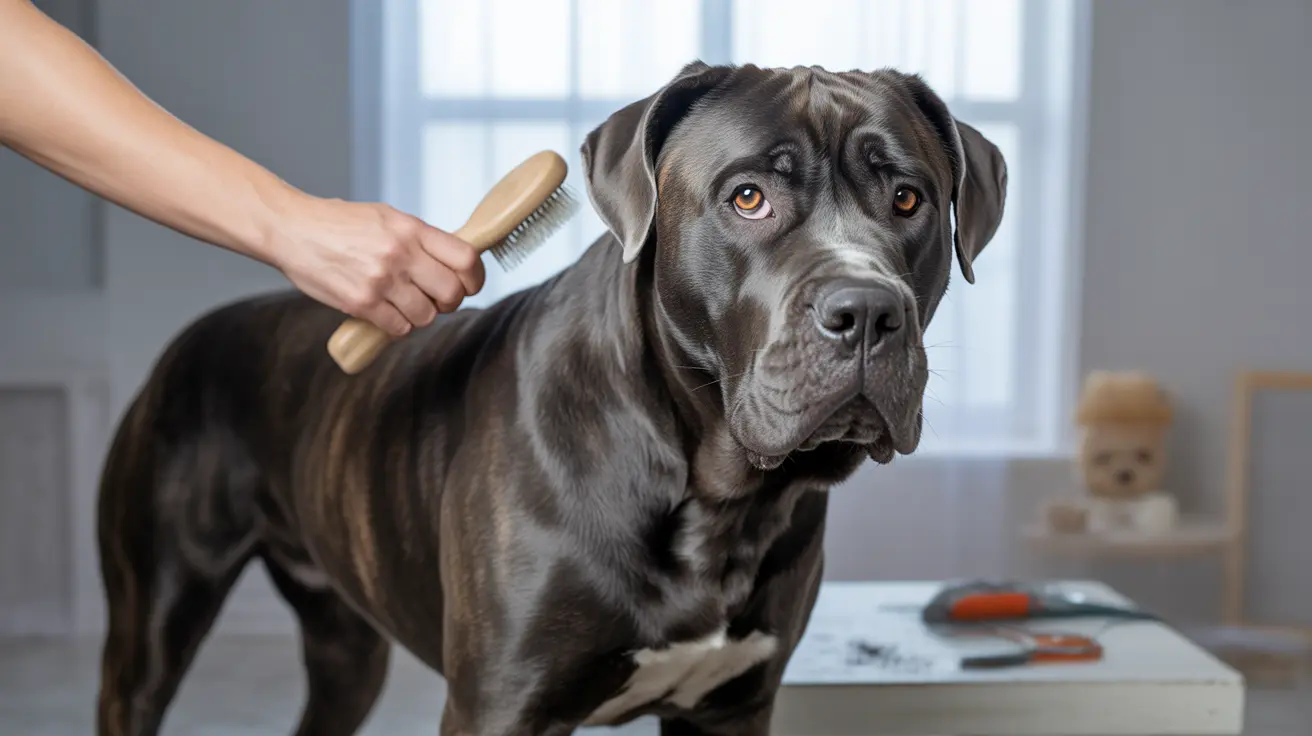Cane Corso owners often face challenges with their beloved pets' skin health. These magnificent Italian mastiffs are prone to various skin conditions that require careful attention and management. Understanding these issues and implementing proper care strategies is crucial for maintaining your Cane Corso's health and comfort.
In this comprehensive guide, we'll explore the common skin problems affecting Cane Corsos, their causes, and most importantly, how to effectively prevent and treat them. Whether you're a new Cane Corso parent or an experienced owner, this information will help you ensure your dog's skin stays healthy.
Common Skin Conditions in Cane Corsos
Cane Corsos can develop several distinct skin issues, each requiring specific attention and treatment approaches. The most frequent conditions include:
Allergic Dermatitis
Environmental and food allergies commonly trigger skin reactions in Cane Corsos. Symptoms include excessive scratching, redness, and inflammation. These allergies can lead to secondary bacterial infections if left untreated.
Seborrhea
This condition causes either excessive oiliness (seborrhea oleosa) or dryness (seborrhea sicca) of the skin. Affected dogs may show dandruff, scaling, and an unpleasant odor.
Identifying Signs of Skin Problems
Early detection of skin issues is crucial for effective treatment. Watch for these warning signs:
- Persistent scratching or biting at the skin
- Redness or inflammation
- Hair loss or thinning coat
- Dry, flaky, or scaly skin
- Unusual odors
- Hot spots or moist dermatitis
- Skin thickening or discoloration
Prevention and Treatment Strategies
Proper Diet and Nutrition
A balanced diet rich in essential fatty acids can significantly improve skin health. Consider these dietary approaches:
- High-quality protein sources
- Omega-3 and Omega-6 fatty acid supplements
- Limited ingredient diets for food-sensitive dogs
- Adequate hydration
Grooming Practices
Regular grooming plays a vital role in maintaining healthy skin:
- Weekly brushing to remove dead skin cells
- Monthly baths with gentle, dog-specific shampoos
- Regular inspection of skin folds
- Proper drying after water exposure
Environmental Management
Control environmental factors that can impact skin health:
- Regular cleaning of bedding
- Humidity control in living spaces
- Flea and tick prevention
- Limited exposure to known allergens
When to Seek Veterinary Care
While many skin issues can be managed at home, certain situations require professional attention. Consult your veterinarian if you notice:
- Severe or persistent itching
- Open sores or infections
- Significant hair loss
- Changes in skin color or texture
- Signs of pain or discomfort
Frequently Asked Questions
What are the most common skin problems that affect Cane Corsos and how can I recognize the symptoms?
The most common skin problems in Cane Corsos include allergic dermatitis, seborrhea, and hot spots. Key symptoms include excessive scratching, redness, flaking skin, hair loss, and unusual odors. Regular skin inspections can help catch these issues early.
How can I manage and prevent allergies causing skin issues in my Cane Corso?
Manage allergies through a combination of environmental control, proper diet, and regular grooming. Work with your veterinarian to identify specific allergens and develop an appropriate treatment plan, which may include medications or immunotherapy.
What role do omega fatty acid supplements play in improving Cane Corso skin and coat health?
Omega fatty acids help maintain skin barrier function, reduce inflammation, and promote a healthy, shiny coat. They're particularly beneficial for dogs with dry skin or allergies. Always consult your veterinarian for appropriate dosing.
How often should I bathe and groom my Cane Corso to maintain healthy skin without causing dryness?
Bathe your Cane Corso every 6-8 weeks using a gentle, dog-specific shampoo. Brush weekly to distribute natural oils and remove dead skin cells. Increase grooming frequency during seasonal shedding periods.
When should I consult a veterinarian about persistent itching, hair loss, or skin infections in my Cane Corso?
Seek veterinary care if skin problems persist for more than a few days, if there are signs of infection (redness, swelling, discharge), or if your dog appears uncomfortable. Early intervention can prevent more serious complications.






